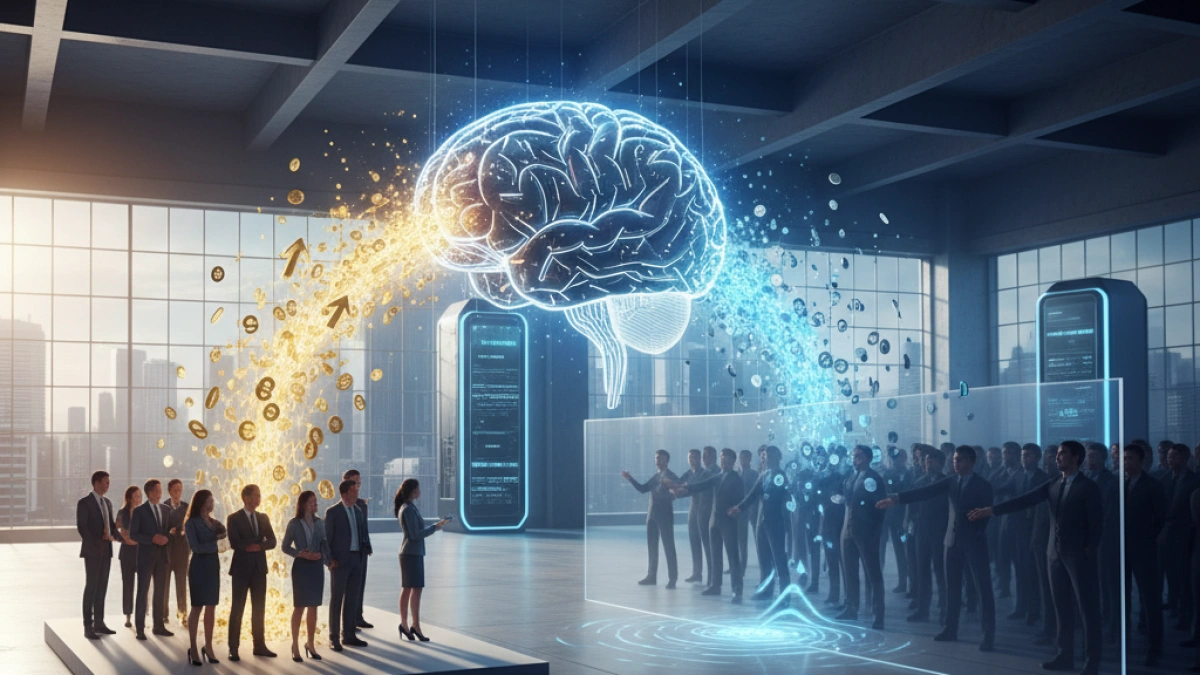Impact of AI on Employment: High Salaries and Fewer Opportunities Since 2022


Artificial Intelligence (AI) has ceased to be a futuristic concept and has become a phenomenon that is tangibly shaping the labor market. These changes are reflected in two recent reports that provide a contrasting picture: while professionals specializing in AI enjoy notably high salaries, entry-level jobs have become less accessible.
The Harsh Reality for Starters: 32% Fewer Entry-Level Jobs
According to a report published by Adjuna, one of the leading job search portals in the UK, entry-level jobs have experienced an alarming decline of 32% since the launch of ChatGPT in November 2022. This figure emphasizes the intensification of the transformation triggered by AI in the labor world.
The most concerning aspect is the speed of this trend. In the past year, entry-level jobs have decreased by 28.4%. To provide a clearer perspective, in November 2022, these jobs accounted for nearly 29% of total job postings, whereas that figure has now dropped to 25%.
These figures corroborate claims by industry experts, such as Darío Amodei, CEO of Anthropic, who anticipated that up to half of entry-level office jobs could disappear within 1 to 5 years. With a recorded decrease of 32%, this prediction is quite alarming.
The Reward for Specialists: Salaries 56% Higher
In contrast, a report from PwC offers a more hopeful view for those who have chosen to specialize in artificial intelligence. According to the analysis conducted by this global consulting firm, the salaries of workers with AI skills are, on average, 56% higher than those without such skills.
This increase is notable considering that a previous analysis by PwC indicated that the salary premium for AI experts was "only" 25%. This reflects a rapidly growing demand, positioning AI knowledge as an increasingly valuable asset in the job market.
However, there is a caveat accompanying these figures: despite the higher salaries, the total job openings in the market have decreased by between 7% and 11%, depending on the sector. Although there are fewer opportunities in general, jobs requiring AI skills are much better compensated.
A Radical Change in the Labor Market
The transformation of the labor market driven by AI is evident and substantial. Industry leaders, such as the CEO of Ford, have supported these claims, indicating that AI has the potential to replace half of office workers in the near future. This context highlights the urgent need to adapt to the new market demands.
The conclusion drawn from this analysis is clear: artificial intelligence is not just an additional tool; it has become a fundamental requirement for labor competitiveness. Preparing in AI is no longer an option but a crucial necessity to ensure sustained growth in salaries and opportunities in a rapidly evolving labor market. The gap continues to widen between those who master AI technologies and those who do not, turning knowledge in this area into a distinguishing and decisive factor.
In this context, continuous preparation and training in artificial intelligence become imperative for those seeking not only to survive but to thrive in the future labor environment.
For more information and analysis on the evolution of the labor market and artificial intelligence, you are invited to keep reading this blog.



















